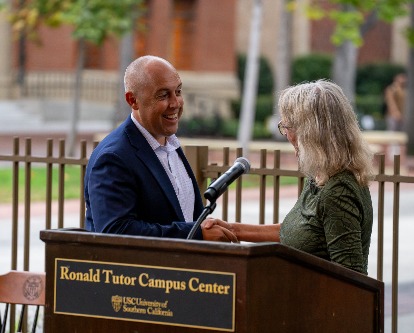Joe Raffiee
- Jorge Paulo and Susanna Lemann Chair in Entrepreneurship
- Associate Professor of Management and Organization
Joe Raffiee is an Associate Professor of Strategy. Joe's research focuses on strategic human capital, employee mobility, entrepreneurship, and innovation. Joe's research has been published or is forthcoming in Administrative Science Quarterly, Strategic Management Journal, Organization Science, Management Science, Academy of Management Review, Academy of Management Journal, Organizational Behavior and Human Decision Processes, Research Policy, and the Academy of Management Perspectives. His research has been funded by the National Science Foundation and the Kauffman Foundation and covered by media outlets such as the Harvard Business Review, Huffington Post, Inc. Magazine, and Wired. In 2021, Joe was recognized as one of the “Top 50 Undergraduate Business Professors" by Poets and Quants.











